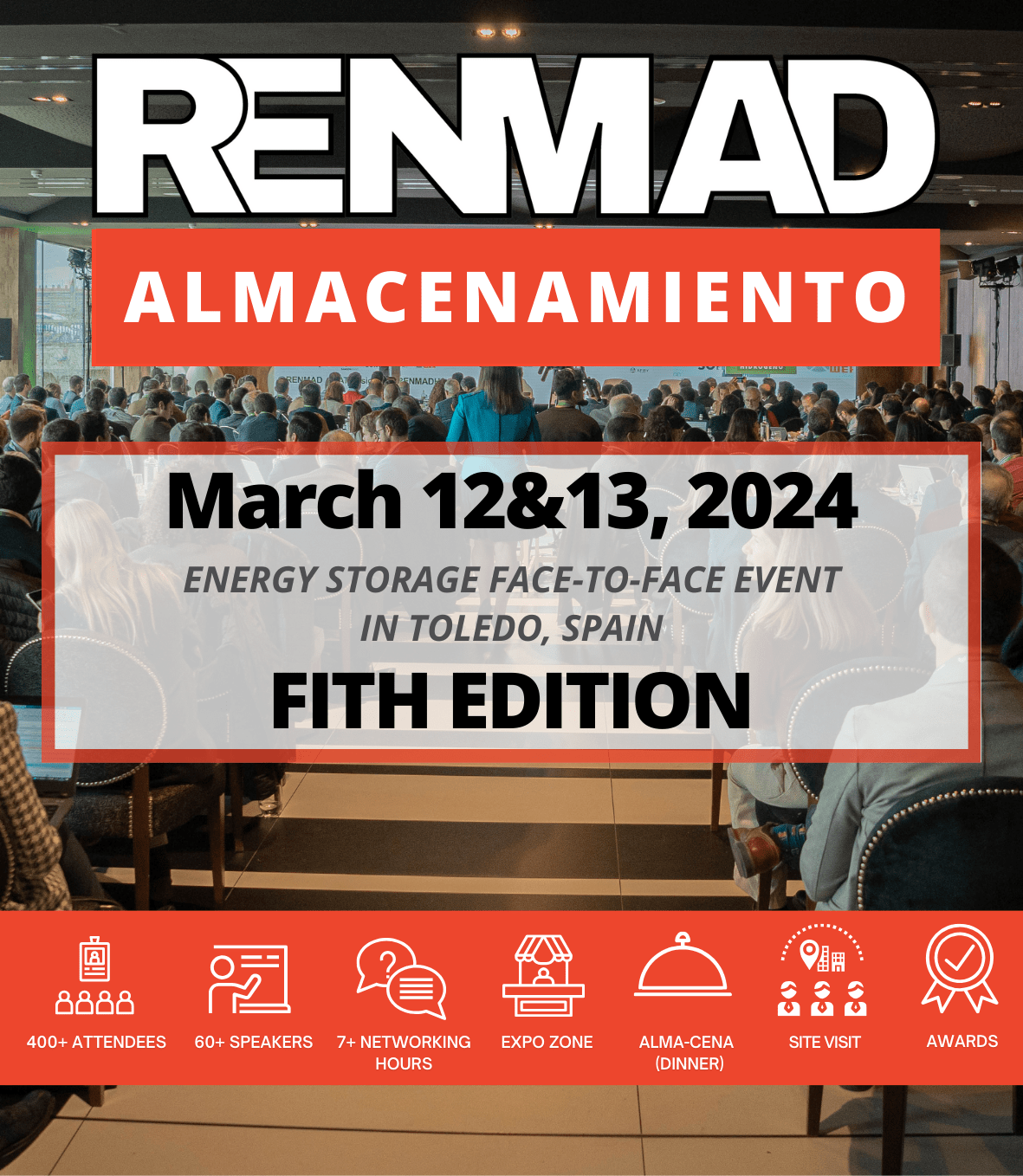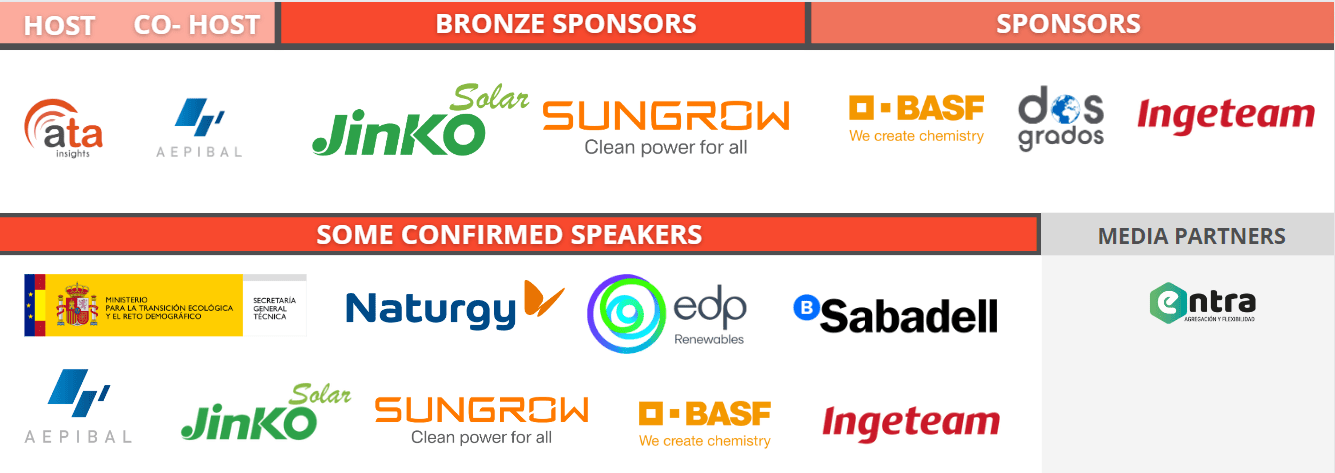Hosted by:
PNIEC SUMMARY:
Towards a sustainable energy transition: A look at energy storage in the National Integrated Energy and Climate Plan (PNIEC) 2023-2030

Towards a sustainable energy transition: A look at energy storage in the National Integrated Energy and Climate Plan (PNIEC) 2023-2030
The National Integrated Energy and Climate Plan (PNIEC) 2023 stands as a fundamental pillar in Spain’s journey towards a greener and more sustainable energy matrix. This ambitious plan not only reflects the country’s commitment to sustainability but also showcases its aspiration to lead in Europe in terms of renewable energy production.
The landscape outlined by the PNIEC 2023 is promising: a significant leap in renewable energy generation capacity, moving from 113 gigawatts (GW) to 160 GW. This increase encompasses wind energy, expected to grow from 50 GW to 62 GW, and solar energy, projected to increase from 39 GW to 76 GW. Additionally, energy storage targets have also increased from 20 GW to 22 GW, which is crucial to managing variable renewables such as wind and PV.
[If you would like to be part of the discussions on PNIEC advancements, regulations, procedures, financing, and energy storage technology, fill in the form at the right side of this page for more information about RENMAD ALMACENAMIENTO (STORAGE) 2024, face-to-face in Toledo, 12&13 March]
However, it’s not all smooth sailing. The path to the energy transition poses critical challenges that demand careful examination and pragmatic solutions. At the core of these challenges lies energy storage, a key element in ensuring a smooth and efficient transition to a cleaner energy matrix.
Despite its undeniable importance, it’s worth noting that energy storage alone is not sufficient to meet the objectives set in the PNIEC. For this, it is imperative that, in addition to storage, renewable generation, energy efficiency, electrification, green hydrogen, and other renewable gases, interconnection with France, and investment in the electrical grid advance in parallel. «The components of the PNIEC are integrated, and progress is necessary in all areas covered by the plan to achieve decarbonization goals,» explains Óscar Barrero, Partner and Head of Energy and Utilities at PwC. Currently, progress is not happening at the required pace in many of these areas, indicating that obstacles are hindering decarbonization in Spain.
Some of the primary challenges are regulatory and administrative. In some cases, the approval process can take years. Additionally, obtaining access and connection to the grid tends to be complicated.
The journey won’t be easy, and the implementation of the PNIEC 2023 will demand strong coordination and commitment at multiple levels. Integrating recommendations from both the European Union and the local industry, establishing a solid and clear regulatory framework, and streamlining approval and grid connection processes are essential to maintain momentum. Furthermore, financial incentives, which are perceived as insufficient in some cases, will need review and potentially extended to encourage energy storage development. The implementation of a capacity market is also crucial to reach the 22 GW energy storage target by 2030 outlined in the PNIEC.
In conclusion, the PNIEC 2023 presents an opportunity for Spain to progress towards a more sustainable and resilient energy matrix. Addressing the challenges associated with energy storage will be crucial to ensure that the energy transition is not just a vision but a tangible reality that contributes to a more sustainable future and a more robust economy. Finally, it is important to clarify that the current version of the PNIEC is a draft. The final version will be published in June 2024, once it is reviewed and amended in line with the comments by the European Commission.
This article is a summary of the webinar «Analysis of the Review and Update of the National Integrated Energy and Climate Plan (PNIEC) 2023-2030,» held on September 28, 2023. You can access the webinar recording and presentations here
If you would like to be part of the discussions on PNIEC advancements, regulations, procedures, financing, and energy storage technology, fill in the form at the right side of this page for more information about RENMAD ALMACENAMIENTO (STORAGE) 2024, face-to-face in Toledo, 12&13 March.
For questions or inquiries, please contact:




